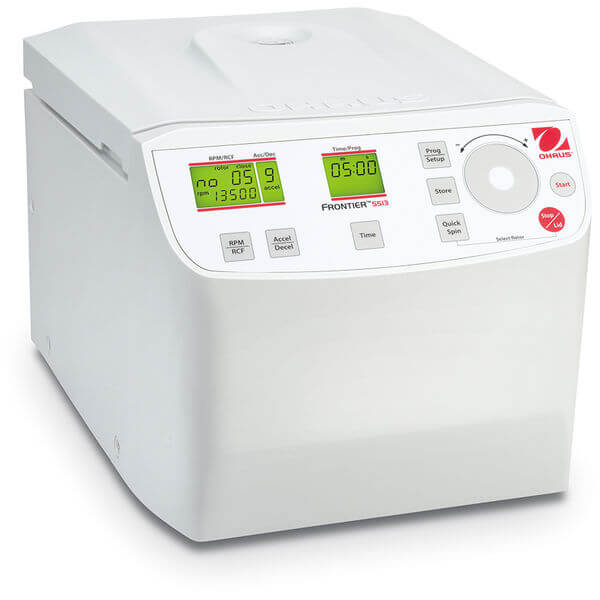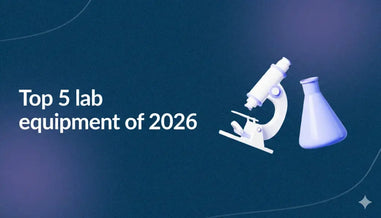- No products in the cart.
Centrifuges are fascinating pieces of equipment that have revolutionized numerous industries and scientific fields. These powerful devices operate on the principle of centrifugal force, which enables the separation of substances based on their density. In this comprehensive guide, we will explore the various types of centrifuges, with a specific focus on industrial and laboratory centrifuges. Additionally, we will delve into their diverse applications across different industries and scientific disciplines.
-
Understanding the Basics: How Centrifuges Work
Before we dive into the different types and applications of centrifuges, let's briefly understand how these machines work. At its core, a centrifuge spins at high speeds, creating a force that drives heavier components outward while lighter components move towards the center. This process allows for efficient separation and purification of substances, making centrifuges indispensable in various applications.
-
Types of Centrifuges
2.1. Industrial Centrifuges
Industrial centrifuges are robust and versatile machines that find extensive use in manufacturing and processing plants. These centrifuges are typically larger and more powerful than their laboratory counterparts, designed to handle large volumes of materials.
a. Decanter Centrifuges: Also known as scroll centrifuges, decanter centrifuges are widely used in wastewater treatment, oil and gas industries, and food processing. They separate solid and liquid phases in slurries, enabling the extraction of valuable components.
b. Disc Stack Centrifuges: These high-speed separators are commonly utilized in the dairy industry, beverage production, and pharmaceuticals. Disc stack centrifuges efficiently separate liquids with different densities and are well-suited for continuous processing.
c. Tubular Centrifuges: Tubular centrifuges are widely used in the biotechnology and pharmaceutical sectors. Their design allows for the separation of delicate biomolecules and high-value pharmaceutical products.
2.2. Laboratory Centrifuges
Laboratory centrifuges are smaller, more precise, and ideal for research, clinical diagnostics, and sample preparation. These centrifuges come in various configurations to cater to specific scientific needs.
a. Microcentrifuges: Used in molecular biology and genetics research, microcentrifuges spin small volumes of samples at very high speeds. They are essential for tasks like DNA extraction and PCR preparation.

b. Ultracentrifuges: Ultracentrifuges are designed for high-speed separations at ultrahigh forces. They are vital tools in biochemistry and virology, allowing researchers to study subcellular structures and particles.
c. Clinical Centrifuges: Found in medical laboratories, clinical centrifuges perform tasks such as blood cell separation, serum preparation, and urine analysis.
-
Applications of Centrifuges
3.1. Pharmaceutical Industry
The pharmaceutical industry relies heavily on centrifuges for various purposes, including the separation of active pharmaceutical ingredients (APIs) from fermentation broths, purification of vaccines, and isolation of specific biomolecules.
3.2. Food and Beverage
Centrifuges play a crucial role in the food and beverage sector. They are utilized in processes like cream separation, beer and wine clarification, and vegetable oil extraction. Centrifuges ensure product quality and improve efficiency in these industries.
3.3. Environmental and Wastewater Treatment
Industrial centrifuges are integral to wastewater treatment plants, where they efficiently separate solids from liquids, allowing for effective waste disposal and water purification. This aids in environmental protection and sustainability.
3.4. Biotechnology and Life Sciences
In biotechnology and life sciences, centrifuges are employed in cell culture research, DNA sequencing, protein purification, and various analytical applications. These machines are indispensable for studying biomolecules and cellular components.
3.5. Oil and Gas Industry
The oil and gas industry extensively use decanter centrifuges to separate oil from water and solids during oil drilling operations. These centrifuges help recover valuable oil while minimizing waste and environmental impact.
Conclusion
Centrifuges are remarkable tools that have shaped industries and scientific research. Understanding the different types of centrifuges and their wide-ranging applications highlights their versatility and significance in modern society. Whether in pharmaceuticals, food and beverage, environmental protection, or cutting-edge research, centrifuges continue to drive innovation and progress across various fields. As technology advances, we can expect even more sophisticated centrifuge designs, further expanding their capabilities and impact on various sectors.
For over 40 years, Lab Pro Inc. has been committed to delivering the highest quality lab equipment such laboratory centrifuges, lab supplies, Excelta hand tools, reagents, distance learning kits, and cleanroom PPE apparel. Renowned by global medical device companies and laboratories, we ensure exceptional quality in every product. Contact us online or call 888-452-2776 to learn more. Discover top-notch lab supplies and elevate your experiments today!













































That was really a great Article.Thanks for sharing information. Continue doing this.